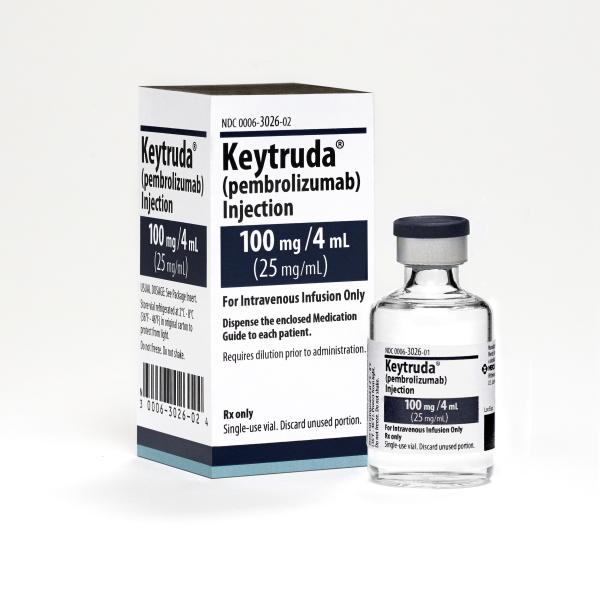Immunotherapy, modifying our immune system to treat disease has been with us for a long time; since Jenner vaccinated the first patient against smallpox. Today, it has an increasing role in treating cancer. In that war, our immune system is our first defense, identifying the abnormal cells and removing them. Checkpoint inhibitors are a component of the immune system that helps to distinguish us from them; but in some instances, cancer cells have found ways to disguise themselves, fooling the inhibitors and covering “their tracks.” Modulating checkpoint inhibitors is part of the new wave of oncology drugs making significant therapeutic inroads for some cancers. You hear about them every day, Opdivo and Keytruda.
A bit of science
Our T cells directly kill or aid in removing cancer cells, among its many targets. PD-1 is a protein that binds with another protein, PD-L1 found on normal cells; together they act as the "off switch" for T cell’s indicating that the cell should be left alone. Some cancer cells have been able to disguise themselves by making lots of PD-L1, getting under our immune’s system radar. Pembrolizumab and Nivolumab, we know them as Keytruda and Opdivo, are monoclonal antibodies cover over the PD-1 receptor, inhibiting PD-1’s checkpoint action, unleashing to T cells to kill cells it would ordinarily ignore. Unfortunately, in addition to killing those disguised cancer cells, it can destroy healthy cells, a form of collateral damage that accounts for many of the adverse effects of these agents.
These drugs have been efficacious in treating melanoma, non-small cell lung cancer, and kidney cancer. To give you a sense of how effective they are, Keytruda in treating kidney cancers demonstrated “an almost 50 percent reduction in risk of death and an almost 40 percent drop in the risk of the disease progressing or death.” [1] Keytruda is part of the therapy that has kept President Carter alive. Keytruda’s wholesale price was roughly $5 -7,500 for each three-week treatment – approximately $130,000 or more annually. And those prices do not reflect discounts and rebates; you know the story. Merck, Keytruda’s owner, has already discounted that price in half for China, in response to Bristol-Meyer’s Opdivo, their competitor. [2]
A bit of business
We can wring out hands over those prices, but what physician or patient is going to turn down a drug that cuts mortality in half? Would you. The soundbite narrative from our representatives would be asking why so much, and the soundbite response would be a wave of the hands and references to increasing research and development costs – Keytruda didn’t bring itself to market. But the dirty little secret, at least to us, is that Merck didn’t do the heavy lifting either they bought the drug from a much smaller start-up, an increasing business strategy, that left them completing the still expensive, but not as costly clinical trials.
Drug discovery is a risky and costly business and increasingly, the primary role of biotech startups. They can go bust, and the losses fall to their owners, or they can get lucky and find a promising drug. They frequently don’t have the capital necessary to bring the drugs fully to market and are acquired by what we would call Big Pharma. It is the moment for the start-up to cash out, realizing big money for the sale of their company or the rights to their discovery. It is a financial strategy where the start-up and Big Pharma are the winners, and the patients pick up the tab - a tab that includes the hefty “sign-on” bonus for the start-up.
Merck acquired Keytruda in the portfolio the purchased when buying -Schering-Plough in 2007, who had in turn, acquired it from a Dutch company. According to the Financial Times, they didn’t even know they had a winner until they saw Bristol-Meyers developing the competitive Opdivo. Makes you think of the guy buying the lottery ticket at the gas station and not knowing he had hit the jackpot until someone told him to look at the numbers.
Acquisition and licensing, the new approach to drug discovery may be responsible for almost 79% of new drug discovery brings unintended consequences, economic externalities. Big Pharma reduces its risk during early drug development by outsourcing the work, but then why have an extensive research program? Less research means you less basic science and fewer scientists making it more difficult to identify the next big thing – Bristol-Meyers gave Merck its wake-up call. And in fear of missing out, Big Pharma may pay a great deal more to try and secure a blockbuster. The start-ups take on a considerable amount of risk, and they want a suitable reward. While it is difficult to assess how much more we pay for those “sign-on” discovery bonuses, they do impact the final price; as I will never tire of saying, the money for all of this comes from patients and populations.
A closer look at Keytruda shows that the price of drugs is more than R&D, there are acquisition costs to be paid to entrepreneurs and their hedge-fund fellow travelers who took a risk and got a big payday. There are still other factors, the cost of bringing these drugs safely to market, it is difficult to take shortcuts with safety. And concerns about why we are the world’s copay? In what universe is it OK for China, the world’s second largest economy, to pay half as much for the same drug? Makes you think PT Barnum was right.
[1] Merck’s Keytruda trial delivers boost to kidney cancer patients
[2] The PharmaLetter
Source: The basic outlines of Keytruda’s business story is from the Financial Times, Keytruda shows the high price of curing cancer




